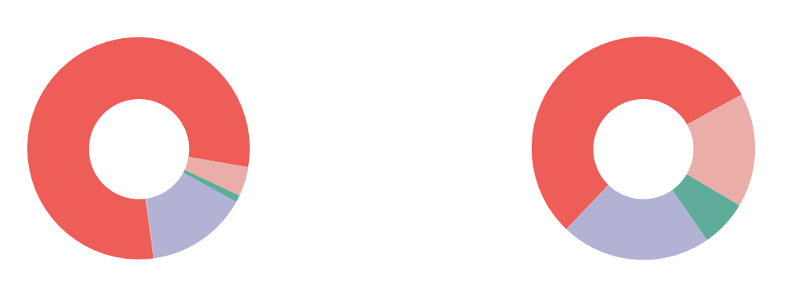
Publications and Research
Our science team is lead by Dr. Joseph F. Hayes.
He is CMO and Co-founder of juli, professor of psychiatry at University College London and sits on the World Economic Forum Future Council on Mental Health
juli Data is used for Award-winning study that demonstrates correlation between temperature and depression
Dr. Pip Clery from University College London (UCL) conducted a pioneering study, based on data from juli, utilized data from users with depression and bipolar disorder to explore the relationship between temperature changes and mental health symptoms.
Dr. Clery and her team discovered that every degree increase in temperature correlated with a reduction in depressive symptoms and an increase in manic symptoms, even after accounting for other weather variables and personal characteristics.
The research marks a significant advancement as the first study to leverage geolocated weather data on a large scale to examine climate effects on mental health.
The poster has been awarded the 2024 Royal College of Psychiatrists International Congress poster prize in the Research category for her groundbreaking study on the impact of outdoor ambient temperature on mental health.
Digitally managing depression
We recently received results from our first randomized controlled trial (RCT) conducted in conjunction with University College of London (UCL), in which 456 people with depression were included in the study’s per-protocol analysis after 8 weeks.
juli achieved the study’s primary endpoint, demonstrating statistically significant efficacy in people with major depression who used juli compared to an active control arm, which used a basic version of the juli app with limited functionality.
Randomized controlled trials in depression are notoriously difficult; Placebo effect is pronounced in depression trials in general, and especially with an active control; in this study control group participants had a daily interaction which asked them to report their condition, and such self-reflection has been shown to improve mood. Digital health trials that have a control arm have also struggled to achieve statistical significance, in part due to challenges keeping people engaged.
The study has been published in Sage Journal.
Digitally managing asthma
We recently received preliminary results from our second randomized controlled trial (RCT) conducted in conjunction with University College London (UCL), in which 152 people with asthma were included in the study’s per-protocol analysis after 8 weeks.
juli achieved the study’s primary endpoint, demonstrating statistically significant efficacy in participants with asthma who used juli compared to an active placebo control arm (a basic version of the juli app with limited functionality).
This is the second randomized controlled trial in which juli was compared to an active control and achieved statistically significantly superior improvements. We now have proof of concept in two very different and difficult-to-treat conditions; depression and asthma.
These two studies validate the efficacy and prove the benefits of juli’s approach to chronic condition management: providing people with information based on their own previously siloed data so they understand what drives their conditions, and motivating behavior change to augment healthy behaviors and avoid triggering symptoms.
juli reduces bipolar disorder symptoms in more than half of users. (White Paper)
Demonstrated 55.4% reduction in the number of people experiencing mania symptoms after 8 weeks using jul
2,987 users with bipolar disorder downloaded the juli app
The study also shows an 18.7% reduction in depression symptoms measured with PHQ8
Real-time air pollution and bipolar disorder symptoms: a remote monitored cross-sectional study.
The first study to find that real-time air pollution exposure is associated with acutely increased depression symptoms in people with bipolar disorder.
assessment of real-time association between localised mean air quality index and the severity of depression and mania symptoms in people with bipolar disorder
as air quality worsened, symptoms of depression increased
Air pollutants potentially play a role in mental health problems through inducing neurotoxicity, neuroinflammation and hormonal dysregulation
The study has been published in the British Journal of Psychiatry
Why does engagement matter in health apps? (White Paper)
Good apps support healthcare effectively, but only if they are used regularly by patients. We analyze the topic:
Retention and engagement drive clinical outcomes
Most health apps struggle to retain patients
juli has proven to drive very high retention well above industry norms
Personalization, gamification, reminders and a highly personable UI help drive continued utilization
Do you want to know more about the science behind juli?
Get in contact with us: info@juli.co.

